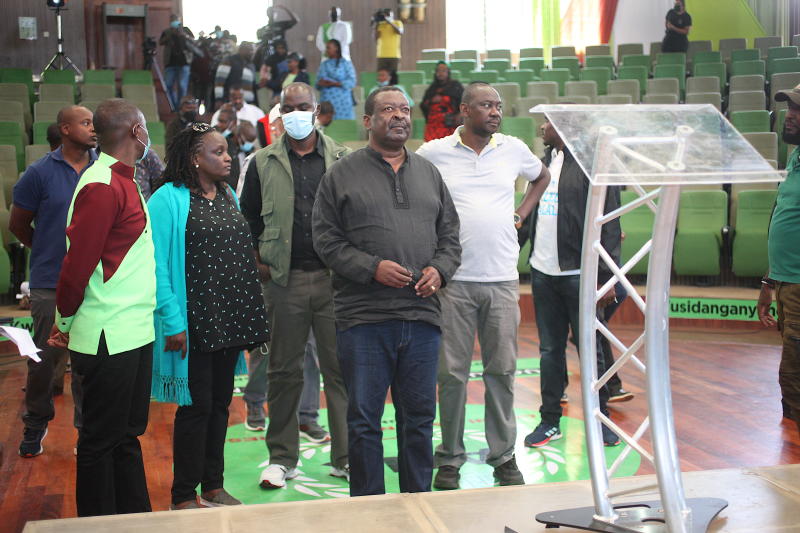×
The Standard e-Paper
Kenya’s Boldest Voice

Musalia Mudavadi checks the stage where he will give an official address at the Bomas of Kenya for the ANC National Delegates Convention. [Wilberforce Okwiri, Standard]
The back cover of his autobiography says he has been framed and even defamed differently by different people, depending on their dreams and whims. ANC party leader and former Vice President, and Deputy Prime Minister Musalia Mudavadi has had more than his fair share of accolades and cutting criticisms, depending on the occasion and on person speaking.